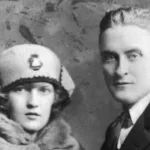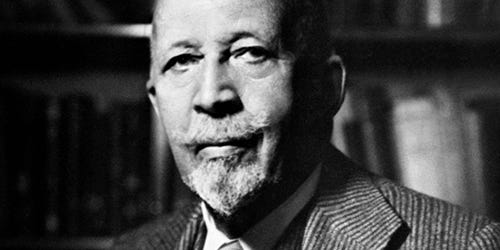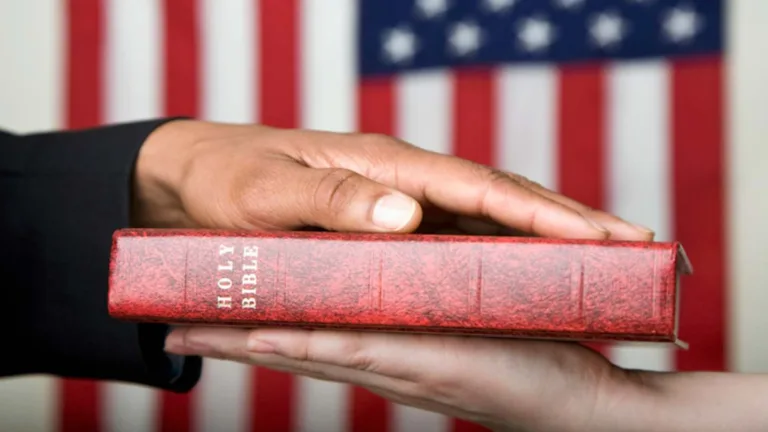The story of Black progress in America is often told through the lens of two towering figures: Booker T. Washington and W.e.b. Du Bois. Both men rose from humble beginnings to become influential voices for their people, yet their visions for achieving equality Differed Dramatically. Understanding these contrasting perspectives is crucial to grasping the complexities of The Civil Rights Movement and its enduring legacy.
Born into slavery, Booker T. Washington experienced firsthand the brutal realities of Jim Crow segregation. He believed that economic independence was the key to Black liberation, advocating for vocational training and gradual Integration Into Society. His famous “Atlanta Compromise” speech urged African Americans to focus on self-improvement and economic advancement rather than Demanding Immediate Civil Rights. This pragmatic approach resonated with many, especially in the South where racial tensions were high.
On the other hand, W.e.b. Du Bois, raised in a more integrated environment, witnessed the insidious effects of Jim Crow racism firsthand. He argued that true equality required both economic and social justice, emphasizing the importance of education and Immediate Civil Rights. Web Dubois and Booker T. Washington became entangled in a public debate that shaped the course of Black activism for decades to come.
Booker T. Washington’s Atlanta Compromise
In 1895, Booker T. Washington delivered his now-famous “Atlanta Compromise” speech at The Cotton States and International Exposition. This address, aimed at a predominantly white audience, outlined Washington’s vision for Black progress in America. He argued that African Americans should focus on acquiring vocational skills and building economic independence through agriculture and Manual Labor. He believed that by demonstrating their competence and worthiness, Black people could gradually gain the respect and acceptance of white society.
Washington emphasized the importance of patience and cooperation, urging Black citizens to avoid demanding immediate civil rights or engaging in Confrontational Activism. He saw this “compromise” as a necessary step towards achieving true equality in the long run. The speech resonated with many white Southerners who were wary of radical change and eager for a peaceful Resolution To Racial Tensions.
However, the Atlanta Compromise was met with fierce criticism from those who believed it perpetuated segregation and denied Black People Their Fundamental Rights. Booker T. Washington vs W.e.b. Du Bois, became a defining debate within the Black community, shaping the trajectory of The Civil Rights Movement for decades to come.
W.e.b. Du Bois and The Fight For Civil Rights
W.e.b. Du Bois, a brilliant scholar and activist, vehemently disagreed with Washington’s approach. He believed that true equality required not just economic advancement but also full political and social rights. Du Bois argued that Black people Deserved Immediate Access To Education, Voting Rights, and an end to segregation. He saw the Atlanta Compromise as a dangerous sell-out that would perpetuate racial inequality for generations.
Du Bois’s powerful writings and speeches galvanized Black activists across the country. He co-founded The Niagara Movement in 1905, demanding full civil rights and an End To Discrimination. This organization laid the groundwork for the Naacp, which Du Bois helped establish in 1909. The Naacp became a leading voice for Black Americans seeking equality, Fighting Tirelessly Against Segregation, lynching, and disenfranchisement through legal challenges, Public Awareness Campaigns, and grassroots organizing.
Web Dubois and Booker T. Washington’s contrasting ideologies shaped the course of The Civil Rights Movement. While Washington emphasized gradual progress through economic self-reliance, Du Bois championed immediate action and full civil rights for all. Their debate continues to resonate today, reminding us that the struggle for equality is ongoing and requires constant vigilance and activism.
 Influential People in the 1920s: Defining a Decade
Influential People in the 1920s: Defining a DecadeContrasting Visions of Black Equality
The fundamental difference between Booker T. Washington and W.e.b. Du Bois lay in their visions for achieving Black equality. Washington believed in a gradual approach, Emphasizing Economic self-sufficiency and vocational training as the Path To Progress. He argued that by demonstrating their competence and industry, African Americans could gradually earn the respect of white society and dismantle Segregation Over Time. This pragmatic approach resonated with many Black communities who faced immediate economic hardships and sought stability amidst widespread discrimination.
Du Bois, on the other hand, championed a more radical vision. He believed in immediate civil rights and full social and political equality for All African Americans. He saw education as the key to unlocking Black potential and urged Black people to demand their rightful place in American society. Booker T. Washington vs W.e.b. Du Bois became a defining debate within the Black community, highlighting the diverse perspectives and strategies for achieving racial justice.
While both men shared the ultimate goal of equality, their contrasting approaches reflected the complex realities of the time. Washington’s emphasis on economic empowerment resonated with those seeking immediate solutions to Pressing Economic Challenges, while Du Bois’s call for full civil rights galvanized activists who demanded a swift and Decisive End To Racial Discrimination. Their legacies continue to shape discussions about race and equality in America today.
The Niagara Movement and Naacp
Dissatisfied with the slow pace of change and the compromises offered by leaders like Booker T. Washington, W.e.b. Du Bois joined forces with other progressive Black intellectuals to form The Niagara Movement in 1905. This organization, named after the powerful falls symbolizing progress and change, demanded immediate civil rights for African Americans, Including Equal Access To Education, Voting Rights, and an end to segregation. The Niagara Movement’s bold platform served as a rallying cry for activists across the nation, challenging the status quo and pushing for more radical solutions to racial injustice.
However, The Niagara Movement faced significant challenges due to its decentralized structure and Limited Resources. Recognizing the need for a more unified and powerful force, Du Bois played a pivotal role in establishing The National Association For The Advancement Of Colored People (Naacp) in 1909. The Naacp, built upon the principles of The Niagara Movement, became a leading voice for civil rights, Employing Legal Strategies, Public Awareness Campaigns, and grassroots organizing to fight against segregation, lynching, and discrimination.
The Niagara Movement and Naacp, Though Distinct Organizations, shared a common goal: securing full equality for African Americans. They marked a turning point in The Civil Rights Movement, shifting from a focus on accommodation to a demand for full and Immediate Justice. Their legacy continues to inspire activists fighting for racial equity today.
Legacy of a Divided Struggle
The contrasting visions of Booker T. Washington and W.e.b. Du Bois left a lasting impact on The Civil Rights Movement, Shaping Its Strategies, priorities, and internal debates for decades to come. While both men ultimately sought racial equality, their differing approaches reflected the complex realities and diverse perspectives within the Black community itself.
The debate between booker t Washington and web dubois highlighted the tension between pragmatism and radicalism, accommodation and resistance. Washington’s emphasis on economic self-reliance resonated with those seeking immediate Solutions To Pressing Economic Challenges, while Du Bois’s call for full civil rights galvanized activists demanding a swift and decisive End To Racial Discrimination. This internal division within the Black community had both positive and negative consequences. While it fostered a range of perspectives and strategies, it also sometimes hampered unity and Collective Action.
Despite their differences, both Washington and Du Bois left behind legacies that continue to inspire and inform contemporary discussions about race and equality. Their work serves as a reminder that the struggle for justice is ongoing and requires constant vigilance, creativity, and a willingness to engage in open and honest dialogue about the Best Path Forward.










